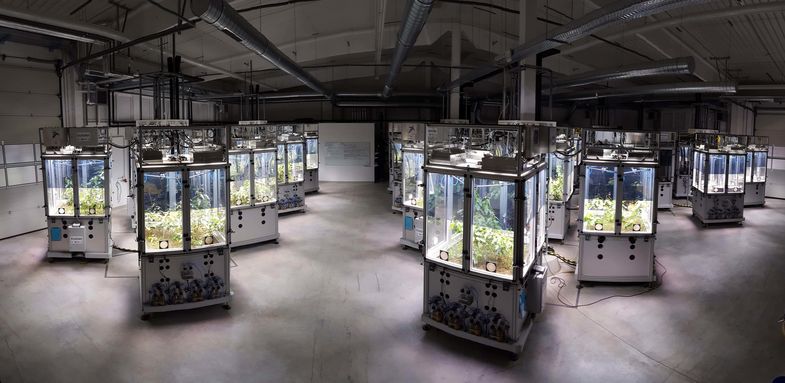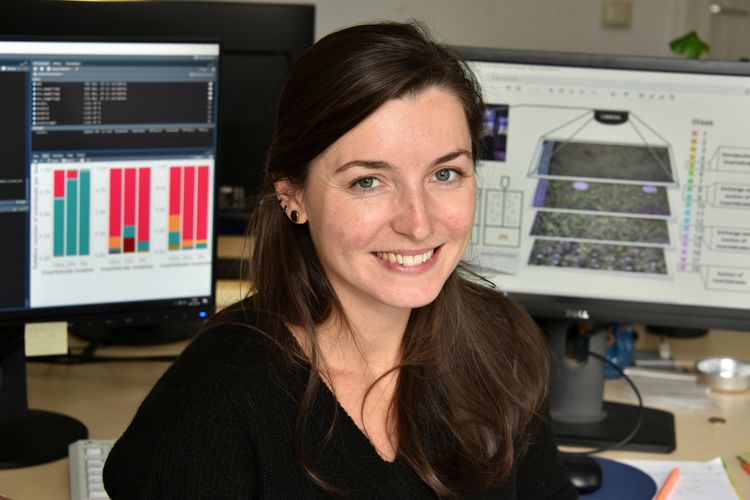Ecosystems are changing around the world, in particular due to global warming and altered land use. Insect species are dying out and the insect biomass is decreasing. Researchers have therefore studied how the biodiversity of plants is changing in the context of climate change. For this purpose, various climate scenarios have been simulated, using different temperatures and precipitation.
Innovative research method in iDiv Ecotron
In a new study reported in the specialist journal “Frontiers in Plant Science”, the research group Biodiversity of Plants of the University of Jena, led by iDiv member Prof. Christine Römermann, presents a different research approach. In cooperation with scientists from iDiv, led by Prof. Nico Eisenhauer, the researchers are focusing on the influence of invertebrates, such as insects, on the biodiversity and flowering behaviour of plants.
“We know that the insect biomass is decreasing,” says Josephine Ulrich, a doctoral candidate from Römermann’s team, referring to a study from 2017 which detected that insects had declined by 75 per cent over the previous 30 years.
The Jena research group has now studied in detail for the first time the extent to which decreasing insect density influences plant development. Whereas previous studies had only carried out field experiments, the research team used the Ecotron, an iDiv research facility where identical climatic situations can be simulated in artificial ecosystems and observed with cameras.
In their experiment, the researchers studied how plant composition and plant development change if the number of insects falls by three-quarters.
Mismatch between plant and animal worlds
Ulrich and her colleagues discovered that the reduced insect biomass brings about a change in plant species. It is especially the dominant plant species, such as red clover, which become more prevalent. The development of the flowering period also changes as insect density declines. Some of the plants studied flowered earlier and others later.
“These changes can lead to mismatches between plant and animal species, which lead to adverse consequences for the ecosystem,” says Ulrich, the lead author of the study. Examples are the food supply of insects and pollination success. This deterioration in the ecosystem function could entail further losses of insect and plant species. An additional consequence could be that plants become increasingly infested with pests. Due to the falling numbers of insects that feed on aphids, for example, these pests could spread unchecked.
Original publication
(Scientists with iDiv affiliation in bold)
Josephine Ulrich, Solveig Franziska Bucher, Nico Eisenhauer, Anja Schmidt, Manfred Türke, Alban Gebler, Kathryn Barry, Markus Lange and Christine Römermann (2020): Invertebrate Decline Leads to Shifts in Plant Species Abundance and Phenology, Frontiers in Plant Science, DOI: 10.3389/fpls.2020.542125































































